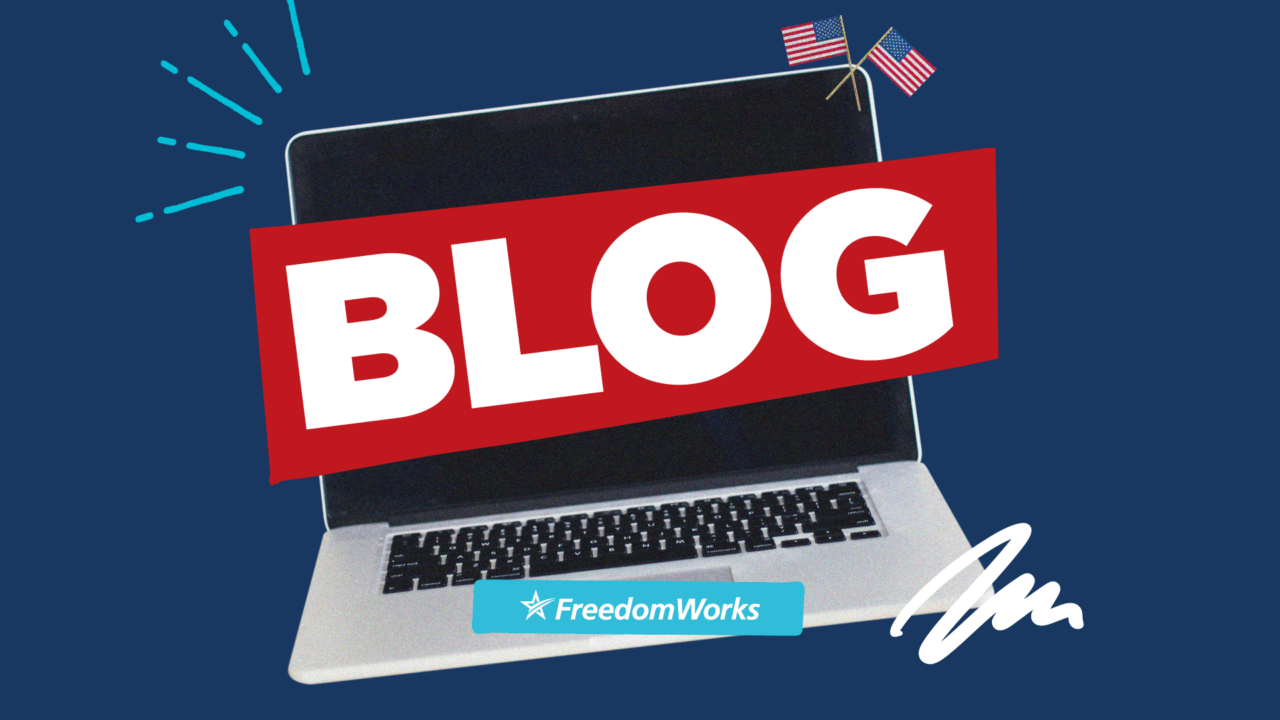In 2024, let’s resolve to embrace economic liberty

The end of the year is a time for reflective, aspirational forward-thinking. Resolutions are made, and for many, abandoned by February, but the sentiment is still clear. We enter each new year with the goal in mind to have a better year than the last. And we would all do well to remember that our freedom to aspire is only possible through a society that protects economic liberty.
The late Nobel Prize-winning economist Freidrich Hayek said it best when he wrote: “to be controlled in our economic pursuits means to be controlled in everything.” In other words, without economic freedom, the remainder of our freedoms simply do not exist.
So while the free market is the most powerful engine for economic growth ever developed, it is more important to remember that free markets enable us to live according to our values.
Living these values includes what businesses we patronize and how we spend our money. For example, Chik-Fil-A is well-known for being closed on Sunday, a legacy of its founder’s faith-driven values. While many Americans would love to have a lazy Sunday morning chowing down on a crispy Chik-Fil-A sandwich and waffle fries, the only way they can do so is by purchasing the meal on Saturday and putting it in the refrigerator. Likewise, the founders of Ben & Jerry’s have incorporated support for progressive causes into their business, which in practice means a portion of every dollar you spend on their ice cream will support charitable work that advances this philosophy. Americans have the freedom to decide if patronizing these establishments conflicts with their values, but many for others, it’s these exact values that enhance their experience and desire to purchase.
The same goes for what we invest in.
Movements on the left and right are cut from similar cloth when it comes to how we invest scarce resources. Individuals will ultimately seek to maximize value from their investments, and the financial return is not their only consideration. There exists a semi-unquantifiable value gained by investors in supporting companies that align with their view of how the world should be. That is the essence of living your values, and an example of how markets help us live more fulfilling lives.
Most Americans best understand this concept as the American Dream. Economic freedom is inextricable from our ability to raise families, engage in rewarding hobbies or activities, and support our community.
This relationship between economic freedom and personal freedom extends to all facets of our lives. Unsurprisingly, how we invest capital is no different.
Before public financial markets, a business in need of capital had far fewer options. A loan from a bank or a direct investment from a wealthy individual could suffice. But with a public market, almost anyone can become a partial owner of a publicly traded company. Recent innovations in this space, such as the growth of commission-free trading platforms, have provided more access to public exchanges to millions more.
The economist Milton Friedman argued that the primary role of a public company is to provide value to shareholders. His theory implies that a public company should be focused on maximizing profits unless shareholders demand otherwise. Consequently, it shouldn’t be surprising that shareholders often demand more than just profits, and when they do so, companies respond to that demand accordingly to their benefit.
On the political left, concerns about climate change have led to an increased desire for companies focused on reducing their carbon emissions. Altruism on behalf of the traded companies has very little to do with it. If investors increasingly favor companies that are deemed to align closer to their values, even at the expense of greater potential profits, then capital will flow to them.
On the political right, there is a popular saying “go woke, go broke”. Recent research has suggested this sentiment to be broadly popular among various demographics. If a company decides to align itself with and advance socially progressive causes, against the demands of its shareholders and customers, then there will be significant negative financial consequences.
Government need not create incentives that are already provided for by the market. Instead, activists on both sides should vote with their wallets, and companies will respond accordingly. Force and coercion are unnecessary to significantly modify the behavior of firms when capital is allowed to flow freely based on the interests of the individual.




